 |
Greetings from West Lafayette
As we approach the end of 2016, we look back with pride at a period of unprecedented growth for the School of Electrical and Computer Engineering. We added seven new faculty members just this fall bringing our total count to 104. Many performance metrics - such as research expenditures and output - are at record or near-record levels. Also, of the 11 preeminent research teams that were formed as part of engineering's recent growth, six are led by ECE faculty, with ECE participation in nine. Many of the preeminent teams focus on truly cutting-edge research such as quantum photonics and spintronics.
Our rankings improved slightly this year (EE – 8th, CmpE – 11th), and given our recent growth in junior faculty, things will continue to get even better as these faculty members come into their own. The accomplishments of ECE alumni and faculty add to our prestige and we were pleased to celebrate both groups together in October during the 24th annual Outstanding Electrical and Computer Engineering (OECE) awards.
Purdue is investing in upgrading the basement labs in the EE building, and in improving the ECE undergraduate and graduate offices. Our students will soon enjoy renovated space and we welcome visitors. As always, I invite you to explore the work and achievements of our faculty and students featured in this newsletter and appreciate your continued interest in electrical and computer engineering at Purdue.
Sincerely,
V. Ragu Balakrishnan
Michael and Katherine Birck Head
Professor of Electrical and Computer Engineering
|
Growth continues with the addition of seven faculty members to ECE
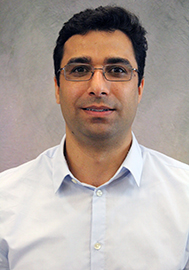 |
Mahdi Hosseini received a master’s degree in 2007 from the University of Louisville, a Ph.D. from Australian National University in 2012, and has worked at the Massachusetts Institute of Technology (MIT) as a postdoctoral associate. Dr. Hosseini’s research interests include atom-optics, quantum opto-mechanics, nano-photonics, quantum optical computation and precision sensing. |
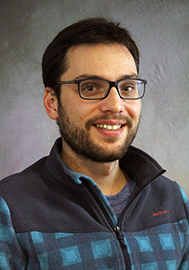 |
Nicolo Michelusi received bachelor’s, master’s, and Ph.D. degrees from the University of Padova, Italy, in 2006, 2009, and 2013, respectively, and a master’s degree in telecommunications engineering from the Technical University of Denmark in 2009. He was a postdoctoral research fellow at the Ming Hsieh Department of Electrical Engineering, University of Southern California, from 2013-2015. Dr. Michelusi’s research focus is on distributed sensing, estimation, and control in wireless networks, bacterial communication, energy harvesting for communication, and interference management techniques for cognitive networks. |
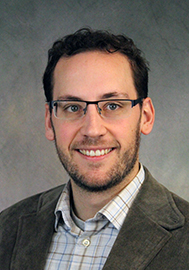 |
Borja Peleato-Inarrea received bachelor’s degrees in telecommunications engineering and mathematics from the Universitat Politecnica de Catalunya, Barcelona, Spain in 2006 and master’s and Ph.D. degrees in electrical engineering from Stanford University in 2010 and 2013, respectively. Dr. Peleato is the recipient of a “La Caixa” graduate fellowship award. He served as a visiting assistant professor at Purdue from 2014-2016. His current research interests include non-volatile storage, wireless communications, distributed optimization, and channel coding. |
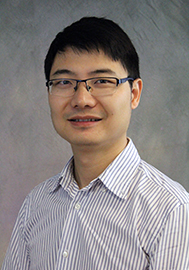 |
Xiaokang Qiu received his BSc in computer science (magna cum laude) in 2004 and his MEng in computer software and theory in 2007 from Nanjing University. He received a Ph.D. in computer science from the University of Illinois at Urbana-Champaign in 2013. Before joining Purdue in 2016, he was a postdoc at the Massachusetts Institute of Technology (MIT). He is interested in software verification and software synthesis. His research focuses on program logics, decision procedures, automated verification, and syntax-guided synthesis. |
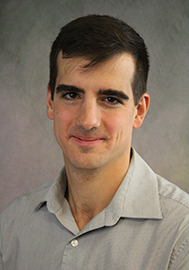 |
Timothy Rogers received his BE from McGill University in 2005 and his Ph.D. from the University of British Columbia in 2015. He is a recipient of the NVIDIA Graduate Fellowship and the Alexander Graham Bell Canada Graduate Scholarship. Dr. Rogers has industry experience at NVIDIA Research, AMD Research and Electronic Arts. Dr. Rogers is interested in exploring computer systems and architectures that improve both programmer productivity and energy efficiency. His research focuses on massively multithreaded processor design. |
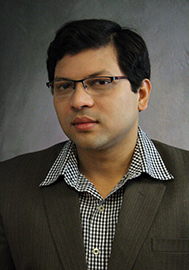 |
Shreyas Sen received his BE in 2006 in electronics and telecommunication engineering from Jadavpur University in India. He received a master’s degree (2009) and Ph.D. (2011), both in electrical and computer engineering, from the Georgia Institute of Technology. He has more than five years of industry experience as a research scientist at Intel Labs, Qualcomm, and Rambus. His research interests include sensing and communication circuits/systems for Internet of Things (IoT), Biomedical and Security. |
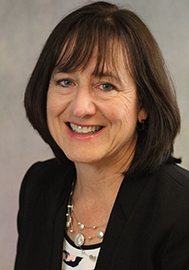 |
Carla Zoltowski was an Education Administrator for the EPICs Program and limited term lecturer in the School of Electrical & Computer Engineering at Purdue, prior to becoming a faculty member. Her academic and research interests include the professional formation of engineers and diversity and inclusion in engineering. |
|
ECE honors six alumni with Outstanding Electrical and Computer Engineer (OECE) award
On October 28, 2016, Ragu Balakrishnan, Michael and Katherine Birck Head and Professor of ECE, welcomed ECE alumni and their families to campus to celebrate their achievements. Six alumni were recognized at this year’s 24th annual Outstanding Electrical and Computer Engineering (OECE) awards banquet. Since 1992, nearly 250 alumni have received this honor.
Dr. Jon Atli Benediktsson (Ph.D. `90, MSEE `87)
President/Rector/University of Iceland
Dr. C.L. Philip Chen (Ph.D. `88)
Dean of the Faculty of Science and Technology, University of Macau
Dr. Dhiraj Kacker (Ph.D. `00)
Co-founder, Canvera.com
Dr. Rasoul Safavian (Ph.D. `95)
Senior Technical Advisor, Public Safety and Homeland Security Bureau of the FCC
Mr. Bill Varner (MSEE `75)
President, ManTech Mission, Cyber and Intelligence Solutions Group
Dr. Yongbin Wei (Ph.D. `99)
Senior Director of Engineering, Qualcomm Research
|
Indiana Bicentennial torch design team celebrates relay with ECE alumnus astronaut Dr. David Wolf
Sixteen ECE students and staff contributed to the design and construction of the electronics and software for the unusually high-tech Indiana Bicentennial torch, which included GPS tracking, built-in photo and video capture, and WiFi connectivity.
The bicentennial torch was the result of an effort of more than two years involving several schools and departments within the College of Engineering including aeronautics and astronautics engineering, chemical engineering, electrical and computer engineering, engineering education, environmental and ecological engineering, materials science and engineering, and mechanical engineering. ECE students designed and implemented three different prototypes for the electronics leading to the final design. Close collaboration with other disciplines was required to negotiate part selections, power requirements, electronic packaging dimensions, and more. The collaboration continued into the relay as the ECE team provided technical support for operation of the torch and maintained internet connectivity so that GPS locations, pictures, and videos were continually accessible.
As it passed through campus on Wednesday, October 12, selected members of the torch design team were privileged to carry the torch on the Boilermaker Special alongside astronaut Dr. David Wolf (BSEE `78) and Leah Jamieson, John A. Edwardson Dean of Engineering. Gabe Martini, ECE student; Todd Wild, Industry Design Projects Manager; and Dr. Mark Johnson, Director of Instructional Laboratories, represented ECE.
|
ECE preeminent team addressing flexible and efficient spectrum usage part of NSF study
Purdue University is part of a National Science Foundation effort to enhance the public's access to a radio spectrum that will become increasingly congested due to a proliferation of smartphones and the "internet of things," spurring greater demand for wireless broadband. Click here for the full story...
|
Explore Purdue College of Engineering research in new publication
Discovery: Innovation@Purdue Engineering is a Purdue College of Engineering publication focused on advances in research. The quarterly e-publication highlights faculty and student research, including collaborations with international partners. Significant initiatives in engagement with industry and in translating research to practice will also be spotlighted. Learn more about cutting-edge research in ECE and the College of Engineering here. |
|
|